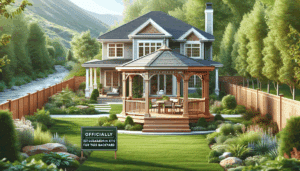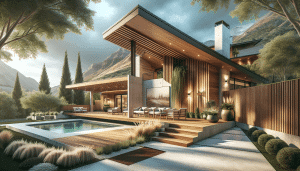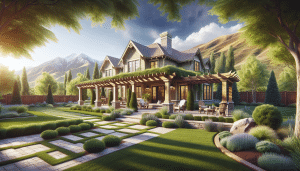When it comes to creating the perfect pergola for your outdoor space, choosing the right materials is paramount. Pergolas not only provide shade and style but also need to withstand the elements and the test of time. In this guide, we’ll delve into Pergola Materials 101, helping you make an informed decision on the best materials for your specific needs and preferences.
Contents
Wood: Timeless Beauty and Warmth
Cedar
- Pros: Cedar is a popular choice due to its natural beauty, durability, and resistance to insects and decay. It weathers gracefully, giving your pergola a rustic charm. Cedar can be stained or painted to match your outdoor décor.
- Cons: While it’s relatively low maintenance, cedar may require occasional staining or sealing to maintain its appearance.
Redwood
- Pros: Redwood is known for its rich, reddish-brown color and natural resistance to decay and insects. It’s one of the most durable wood options available, making it a long-lasting choice for your pergola.
- Cons: Redwood can be more expensive than other wood options, and its availability may be limited in some regions.
Vinyl: Low-Maintenance Elegance
Vinyl
- Pros: Vinyl pergolas require minimal maintenance and are impervious to rot, insects, and decay. They are available in various colors and can withstand harsh weather conditions. You won’t need to worry about staining or sealing.
- Cons: The upfront cost of vinyl may be higher than wood, and some homeowners prefer the natural look of wood.
Aluminum: Lightweight and Durable
Aluminum
- Pros: Aluminum pergolas are lightweight, corrosion-resistant, and require virtually no maintenance. They are ideal for coastal areas where salt air can be a concern. Aluminum can be powder-coated in various colors for a customized look.
- Cons: Some homeowners may prefer the aesthetic warmth of wood over the modern appearance of aluminum.
Composite: Wood-Like Beauty, Plastic Durability
Composite
- Pros: Composite materials combine the beauty of wood with the durability of plastic. They are low-maintenance and resistant to rot, insects, and decay. Composite materials won’t crack, warp, or splinter, ensuring long-lasting beauty.
- Cons: Composite pergolas can be pricier than some other options, and the color choices may be limited.
Making the Right Choice
When selecting the best material for your pergola, consider the following factors:
- Budget: Determine your budget and explore options within that range.
- Aesthetic Preferences: Think about the look and style you want for your outdoor space.
- Maintenance: Consider how much time and effort you’re willing to invest in maintaining your pergola.
- Climate: Take into account your local climate and weather conditions.
- Longevity: Assess how long you want your pergola to last and factor in durability.
Utah Pergola Company is here to help you choose the perfect materials for your pergola project. Contact us at 801-784-6082 or visit our website here to discuss your pergola needs. We’ll work with you to create a stunning and durable outdoor structure that suits your style and preferences.
In the end, the best pergola material is the one that aligns with your vision and enhances your outdoor space, providing shade, style, and longevity for years to come.




